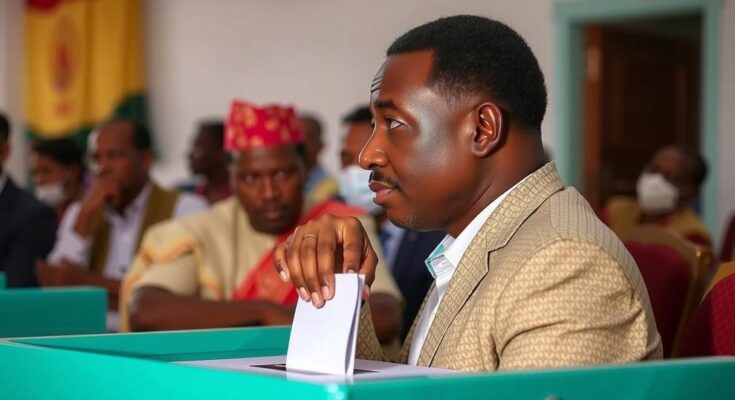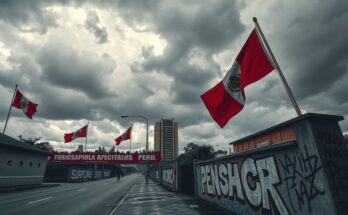Chad holds elections boycotted by opposition parties, which criticize the process as a “masquerade”. President Deby seeks legitimacy amidst challenges such as jihadist threats, media restrictions, and a humanitarian crisis. The opposition cites autocratic governance as grounds for their boycott.
Chad is conducting legislative and local elections on Sunday, which the government of President Mahamat Idriss Deby Itno touts as crucial for facilitating a democratic transition. In contrast, opposition parties regard these elections as a mere façade, labeling the process a “masquerade.” The elections occur against the backdrop of ongoing violence from Boko Haram, the cessation of a military agreement with France, and claims of interference in Sudan’s turmoil.
President Mahamat Deby, who assumed power in 2021 after his father Idriss Deby Itno’s death, previously secured a five-year mandate in an election denounced by the opposition as fraudulent. A presidential advisor emphasized that this election represents a chance for a “generational renewal” within the National Assembly and local bodies, with the last polls having occurred in 2011.
The opposition, opting to boycott the elections, accuses the current government of autocratic practices. Notably, Succes Masra, from the Transformers party, critiqued the situation, stating that participation in these elections equates to “legislative apartheid.” Conversely, Minister of Infrastructure Aziz Mahamat Saleh contended that the elections would enable the President to implement his political vision effectively.
The electoral process unfolds amidst a virtual media blackout, with journalists staging a strike against state-imposed restrictions. Chad, which has endured 33 years under the Deby regime, is classified as one of the least developed nations, according to the United Nations Human Development Index. Additionally, the recent severe rainy season has culminated in substantial humanitarian crises with 500 fatalities and the displacement of two million residents.
Chad has a tumultuous political landscape marked by decades of authoritarian rule. Following the death of long-time ruler Idriss Deby Itno, his son Mahamat Idriss Deby Itno took control but has been met with significant opposition demands for genuine democracy. The country grapples with persistent jihadist violence, economic struggles, and natural disasters that exacerbate the challenges faced by the government. Elections are pivotal as they signal potential changes in administration amidst rising domestic unrest and international scrutiny.
In summary, the legislative and local elections in Chad symbolize a contentious moment in the country’s struggle for democracy. While the ruling party views the elections as a necessary step toward legitimacy, opposition voices contend that the process is fundamentally flawed. The backdrop of violence, repression, and humanitarian crises complicates the electoral landscape, raising concerns about the future of governance in Chad.
Original Source: www.barrons.com




